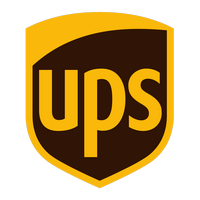In today’s digital landscape, having a website isn’t enough—you need an effective way to make it visible to your audience. This is where WordPress SEO services come in. WordPress, one of the most popular website platforms, offers incredible flexibility, but to make the most of it, you must understand how to optimize your site for search engines. In this ultimate guide, we will walk you through all aspects of WordPress SEO to help you maximize your online presence.
Understanding WordPress SEO: The Basics
SEO, or Search Engine Optimization, enhances your website to rank higher in search engine results pages (SERPs). The goal is to make your site more visible, attract organic traffic, and drive more conversions. WordPress is often lauded as SEO-friendly right out of the box, and for good reason: it comes with features and functionalities that make implementing SEO strategies straightforward.
WordPress allows users to integrate custom plugins, control URL structures, and quickly add metadata to pages and posts. However, understanding how to make these features work for you is vital to unlocking the platform’s SEO potential. The following sections cover everything from the basics to more advanced strategies for optimizing your WordPress site.
Setting Up Your WordPress Site for SEO Success
1. Choosing the Right Hosting for Speed and Performance
The first step to effective WordPress SEO is to choose the right hosting provider. A fast and reliable hosting service ensures your website loads quickly and provides a stable environment to avoid frequent downtimes. Website speed is a ranking factor in Google’s algorithm, and a slow site can lead to high bounce rates, which can negatively affect your search rankings.
Look for hosting providers specifically optimized for WordPress, offering SSD storage and excellent customer support. Managed WordPress hosting providers, such as SiteGround, Bluehost, or Kinsta, can give your website a solid foundation for SEO.
2. Selecting an SEO-Optimized Theme
Your WordPress theme significantly influences how search engines interact with your website. Choose a theme that is visually appealing and optimized for SEO. Themes should be lightweight, mobile-friendly, and well-coded.
A theme that doesn’t bloat your website with unnecessary elements can significantly improve loading speed and user experience, which can affect SEO. Test different themes for speed and performance, and consider reputable options such as Astra, GeneratePress, or Neve.
3. Importance of a Responsive Design
A responsive design ensures your website is accessible and functions well on all devices—desktop, tablet, or mobile. Given that Google uses mobile-first indexing, meaning it predominantly uses the mobile version of the content for indexing and ranking, having a responsive design is crucial for your WordPress SEO strategy.
Essential WordPress SEO Plugins and Tools
To make optimizing your WordPress site easier, several plugins can help manage SEO on the platform.
1. Yoast SEO Plugin
Yoast SEO is one of the most popular WordPress plugins, and with good reason. It helps you create SEO-friendly content by offering suggestions for optimizing titles, meta descriptions, URLs, and content. Yoast also provides a readability analysis, helping to ensure that your content is accessible for users to read.
2. All in One SEO (AIOSEO)
Another popular plugin is All in One SEO (AIOSEO). It provides advanced features such as XML sitemap generation, social media integration, and schema support. This plugin is incredibly beginner-friendly, offering a comprehensive setup wizard that walks you through optimizing your WordPress site from the start.
3. Other Useful Tools
Beyond SEO plugins, tools like Google Analytics and Google Search Console are invaluable. Google Analytics helps you track user behavior and identify which pages perform well. At the same time, Google Search Console enables you to monitor search engine performance and address any issues, such as indexing errors.
Keyword Research for WordPress SEO
Keyword research is the backbone of any successful SEO strategy. It involves identifying your audience’s terms and phrases to find products, services, or information related to your niche.
1. Finding Relevant Keywords
Use tools like Ahrefs, SEMrush, or the Google Keyword Planner to identify relevant keywords. Look for keywords with a healthy balance of search volume and competition. Long-tail keywords, as they are more specific and less competitive, often offer the best opportunities for WordPress sites.
2. Integrating Keywords Naturally
Once you’ve identified your target keywords, ensure they are used naturally throughout your site. Please include them in your page titles, meta descriptions, headings, and content. However, avoid keyword stuffing, as search engines may penalize you for over-optimization. Instead, focus on user intent and try to answer the questions your audience is searching for.
On-Page SEO for WordPress: Optimizing Your Content
1. Crafting SEO-Friendly Titles and Meta Descriptions
Your page title is one of the first things users and search engines see. Ensure it includes your target keyword, is concise, and entices readers to click. Similarly, your meta description should be compelling and summarize the page’s content.
2. Writing High-Quality Content
Creating high-quality content is crucial to the success of your SEO strategy. Focus on producing informative, engaging content that addresses your audience’s pain points. Include the main keyword early in the introduction and throughout the content naturally. Remember to include variations and related keywords to provide context to search engines.
3. Internal Linking
Linking internally to other pages within your site helps distribute link equity and improve navigation. It also keeps users engaged by encouraging them to explore other relevant content, which can reduce bounce rates—another factor that search engines consider for ranking.
Technical SEO for WordPress
1. Optimizing Site Speed and Performance
Site speed has a significant impact on user experience and SEO. Use plugins like WP Rocket or W3 Total Cache to cache your pages and improve loading times. Image optimization is also critical—use tools like Smush or ShortPixel to compress your images without losing quality.
2. Secure Your Site (SSL Certificate)
An SSL certificate ensures your website is secure, which is essential for user trust and SEO. Google prioritizes secure sites and marks those without SSL as “Not Secure,” which can negatively affect rankings. Most hosting providers offer free SSL certificates that can be easily installed.
3. Fixing Common Technical Issues
Ensure your site has all the links and pages. Plugins like Broken Link Checker can help identify and fix these issues. Also, ensure your XML sitemap is up to date and submitted to Google Search Console so search engines can easily crawl and index your site.
Building Quality Backlinks for WordPress Sites
Backlinks are links from other websites that point to your site and are one of the most important ranking factors for SEO.
1. Strategies for Building Backlinks
Engage in guest blogging on reputable websites to build backlinks to your site. Consider reaching out to industry influencers and offering valuable content they can share on their platforms.
2. Avoid Harmful Backlinks
Backlinks from spammy or low-quality websites can harm your SEO efforts. Regularly audit your backlink profile using tools like Ahrefs or Moz to identify any toxic links and disavow them if necessary.
3. Local SEO for WordPress Sites
If you run a local business, local SEO can help you attract customers in your area. Optimizing for local keywords and setting up a Google My Business profile is crucial for appearing in local searches.
4. Local Keywords
Include your website’s local keywords, such as city names or neighborhood mentions. Creating location-specific pages can also help you rank for different local searches.
5. Google My Business and Local Listings
Ensure your Google My Business profile is complete, accurate, and current. To boost your local search visibility, include your business address, phone number, hours, and relevant categories.
Tracking Your WordPress SEO Success
1. Key Metrics to Monitor
Various metrics can measure the effectiveness of your SEO strategy. Organic traffic, bounce rate, conversion rate, and keyword rankings are all critical indicators. Use Google Analytics and Google Search Console to track these metrics and understand your site’s performance.
2. Using Data to Improve
SEO is not a one-time task—it requires constant monitoring and adjustment. Use your data to determine what is working and where improvements are needed. Identify underperforming pages and find ways to enhance the content, keyword targeting, or user experience to improve rankings.
Conclusion
Optimizing your WordPress site for SEO in today’s highly competitive online environment is crucial to achieving higher visibility, more traffic, and increased conversions. By understanding the basics of WordPress SEO Services, optimizing your content, improving technical SEO, and building quality backlinks, you can maximize your online presence and drive more organic growth.




